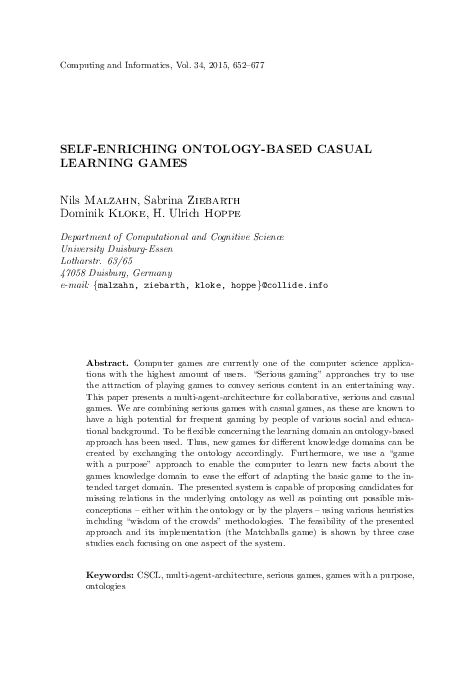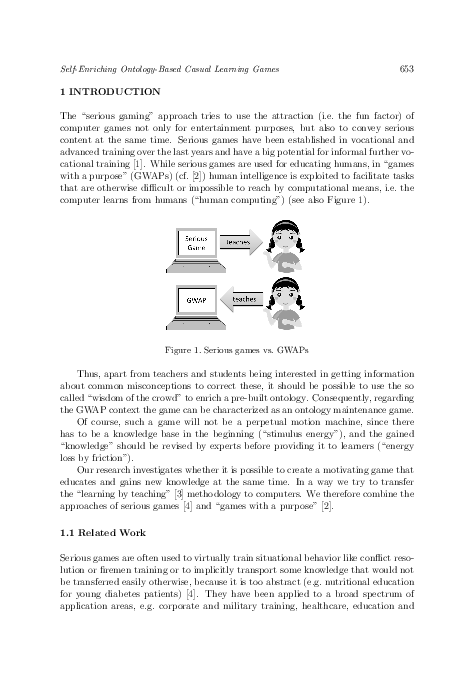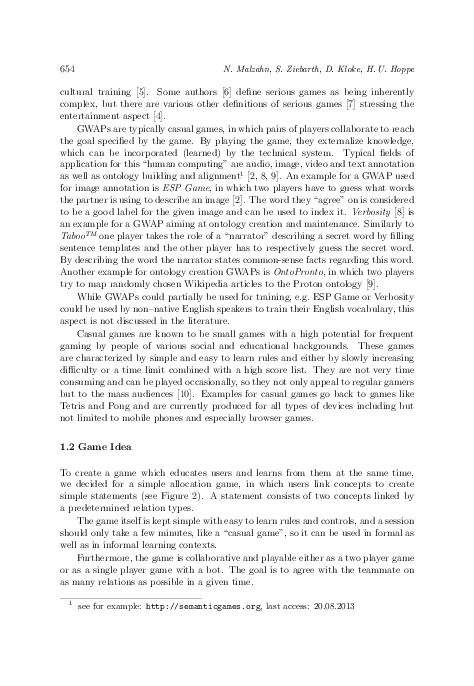Self-Enriching Ontology-Based Casual Learning Games
keywords: CSCL, multi-agent-architecture, serious games, games with a purpose, ontologies
Computer games are currently one of the computer science applications with the highest amount of users. ``Serious gaming'' approaches try to use the attraction of playing games to convey serious content in an entertaining way. This paper presents a multi-agent-architecture for collaborative, serious and casual games. We are combining serious games with casual games, as these are known to have a high potential for frequent gaming by people of various social and educational background. To be flexible concerning the learning domain an ontology-based approach has been used. Thus, new games for different knowledge domains can be created by exchanging the ontology accordingly. Furthermore, we use a ``game with a purpose'' approach to enable the computer to learn new facts about the games knowledge domain to ease the effort of adapting the basic game to the intended target domain. The presented system is capable of proposing candidates for missing relations in the underlying ontology as well as pointing out possible misconceptions -- either within the ontology or by the players -- using various heuristics including ``wisdom of the crowds'' methodologies. The feasibility of the presented approach and its implementation (the Matchballs game) is shown by three case studies each focusing on one aspect of the system.
reference: Vol. 34, 2015, No. 3, pp. 652–677


